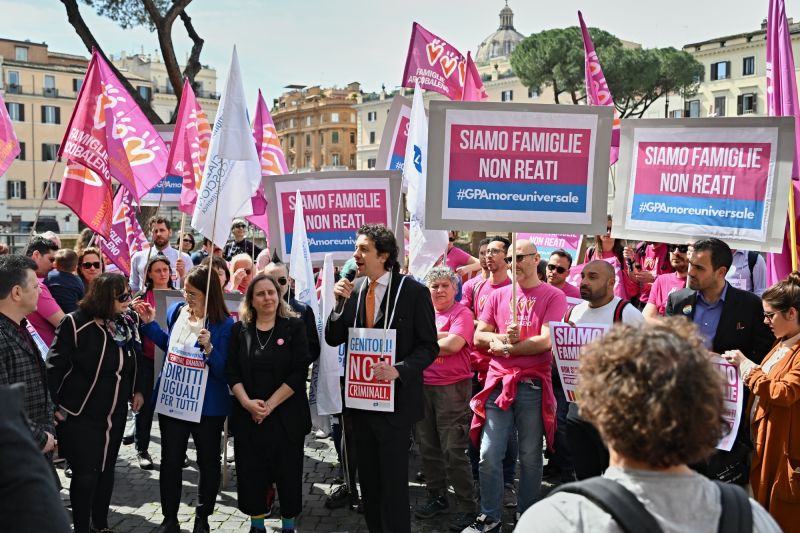
Italy Outlaws International Surrogacy: No More Babies Abroad for Couples
In a notable judgment that has shocked the world, Italy has decreed that it will be illegal for Italian couples to have a baby using surrogacy methods, even if the procedures take place overseas. Pulled into focus by a variety of social, ethical, and legal matters, this decision has forged a new path in the country’s legal landscape.
Indeed, Italy’s ban on surrogacy has been stringent from many years, with those found in violation being subjected to heavy fines and even imprisonment. However, the recent ruling stretches out these legal ramifications to extend beyond the borders of Italy and applies to its citizens who might be considering overseas surrogacy options.
The Italian government believes that the act of surrogacy, irrespective of the locale, is a violation of human rights. Critics argue that the practice is tantamount to exploiting the surrogate mother and commodifying the child. The Italian lawmakers hence argue that all forms of surrogacy, be it altruistic or commercial, compromise the dignity of women by treating them as mere vessels for childbirth. Furthermore, it propagates the divisive notion that children are products that can be bought or procured like commodities.
To understand this perspective, it may help to delve into the two main types of surrogacy: altruistic and commercial. Altruistic surrogacy is carried out with no monetary benefit to the surrogate mother, aside from medical expenses. On the other hand, commercial surrogacy incorporates a financial incentive for the surrogate. Critics of the latter form argue that it can exploit economically disadvantaged women, pressing them into a situation they may not fully comprehend or consent to.
Meanwhile, others argue that this prohibition infringes upon the rights of infertile couples who see surrogacy as their only chance to have a biological child. They argue that the freedom to found a family is a fundamental human right. Therefore, they assert, the state does not have the authority to interfere with this private and deeply personal decision.
Opponents suggest that Italy’s decision not only neglects the importance of parenthood for some but could also lead to an upsetting trend of traveling for surrogacy in secrecy, potentially putting both the surrogate and the aspiring parents in precarious positions. They further argue that a system for paid, regulated surrogacy would instead ensure that the rights and health of surrogate mothers are protected.
The same prohibition has sparked debates related to LGBT+ communities too. Italy’s stance on surrogacy may close off one of the only channels these communities have to
